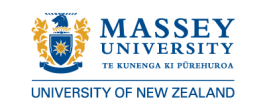
Abundant Intelligences
“We live in the future.
Come join us.”
- Bryan Kamaoli Kuwada
About
The Abundant Intelligences research program imagines anew how to conceptualize and design Artificial Intelligence (AI) based on Indigenous Knowledge (IK) systems. Our approach is grounded in Indigenous epistemologies containing robust conceptual frameworks for understanding how technology can be developed in ways that integrate it into existing lifeways, support the flourishing of future generations, and are optimized for abundance rather than scarcity. Our goal is to advance methods for improving AI to better serve Indigenous communities and others through exploring and developing culturally-grounded AI systems that support Indigenous ways of knowing and that recognize the abundant multiplicity of ways of being intelligent in the world.
Research Questions
1. How can we integrate and adapt existing advanced computational methods into Indigenous Knowledge systems?
2. How can we develop new computational practices within Indigenous contexts to support the flourishing of Indigenous communities?
3. How can we use the knowledge we generate to help guide the development of AI generally towards a more humane future?
Anticipated Outcomes
I. novel hybrid methodologies;
II. Indigenous-grounded imaginaries of the future of AI systems;
III. Indigenous-centered AI design guidelines;
IV. AI systems designed and prototyped using those guidelines;
V. A network of respectful and reciprocal co-creation relationships between Indigenous communities, scholars and AI researchers;
VI. a significant increase in the number of Indigenous people trained to engage with the complexity of AI technologies from within their own cultural contexts, with increased capacity within the Indigenous community to design and build such systems, and exercising greater sovereignty with regards to AI specifically, and scientific and engineering innovation generally.
Approach
Methodology
a. Collaborate with Indigenous communities to imagine AI systems designed from Indigenous epistemologies and with Indigenous protocols;
b. Partner with creators of AI systems to devise new approaches to design; and
c. Develop capacity within and across Indigenous communities for engaging conceptually and concretely with AI.
Axes
Our program is composed of three axes:
The Integrations Axis explores how IK practices and frameworks can be synthesized with the mainstream knowledge frameworks used by AI researchers.
The Imaginaries Axis develops future imaginaries and speculative designs of Indigenous AI to guide the conceptualization of novel AI systems better suited to Indigenous flourishing.
The Intelligences Axis brings Indigenous perspectives to bear on technical challenges currently facing AI research as it attempts to better understand ways of translating human intelligence(s) into machine intelligence(s).
Areas of interest
Language: expanding the range of linguistic structures and language densities that Natural Language Processing (NLP) systems can robustly and appropriately handle.
Storytelling: drawing on Indigenous storytelling and oral traditions to assist in developing more robust, contextualized machine understandings of the stories humans tell to articulate and disseminate knowledge.
Environmental Stewardship: exploring how traditional Indigenous land management and stewardship practices can inform AI-driven land management and restoration systems.
Social-Neuro AI: using the diversity and heterogeneity of IK systems to help develop better models for understanding how humans draw on their socio-cultural context to learn and make decisions, and how situated socio-cultural intelligences can be modeled into AI systems.
Timeline
The current funding supports a six year program of research and research-creation, starting March 1, 2023 and running until February 28, 2029.
All three axes will be active throughout the six years of the grant, but we will have more focus on Integrations in Years 1 & 2, on Imaginaries in Years 3 & 4, and on Intelligences in Years 5 & 6.
Extent
Abundant Intelligences is a six-year research program exploring how to integrate Indigenous Knowledges and Artificial Intelligence systems. It is conducted by an international research team, co-directed by Prof. Lewis at the Indigenous Futures Research Centre at Concordia University, Montreal, and Prof. Hemi Whaanga at Massey University in New Zealand. The research team currently consists of 48 co-investigators and collaborators at 13 universities/research institutes and 8 community-based organizations in Canada, the United States, and New Zealand.
Pods
Abundant Intelligences will be anchored in the Pods, bringing IK knowledge-holders, cultural practitioners, language-keepers, educational institutions, and community vitalization organisations together with scientists, engineers, artists, social scientists, and humanists. Participants will imagine, design, and prototype new computational practices in tight collaboration with their local Indigenous communities. Pods will employ mixed methods, weaving together research-creation, qualitative research, and quantitative approaches to knowledge production within a context of Indigenous research frameworks.
The founding Pods are
• Niitsitapi / Kanien’kehá:ka Pod, based in the Onkwehonwe Research Environment at Lethbridge University, AB;
• Ka Hawai‘i Pae Aina Pod, based in the Create(x) Immersive Media and Data Visualization Lab at the University of Hawai‘i;
• Aotearoa Pod, located at the Āpōpō Indigenous CreativeTech Hub (Wellington) and co-hosted by Indigenous Design & Innovation Aotearoa (Wellington), Massey University (Palmerston North) and Te Hiku Media (Kaitaia);
• We anticipate adding at least 3 more Pods over the next six years.
Funders
Supporters
Painting by Sergio Garzon. IP-AI © 2019.

Abundant Intelligences
"We live in the future. Come join us."
-Bryan Kamaoli Kuwada
About
The Abundant Intelligences research program imagines anew how to conceptualize and design Artificial Intelligence (AI) based on Indigenous Knowledge (IK) systems. Our approach is grounded in Indigenous epistemologies containing robust conceptual frameworks for understanding how technology can be developed in ways that integrate it into existing lifeways, support the flourishing of future generations, and are optimized for abundance rather than scarcity. Our goal is to advance methods for improving AI to better serve Indigenous communities and others through exploring and developing culturally-grounded AI systems that support Indigenous ways of knowing and that recognize the abundant multiplicity of ways of being intelligent in the world.
Research Questions
1. How can we integrate and adapt existing advanced computational methods into Indigenous Knowledge systems?
2. How can we develop new computational practices within Indigenous contexts to support the flourishing of Indigenous communities?
3. How can we use the knowledge we generate to help guide the development of AI generally towards a more humane future?
Anticipated Outcomes
I. novel hybrid methodologies;
II. Indigenous-grounded imaginaries of the future of AI systems;
III. Indigenous-centered AI design guidelines;
IV. AI systems designed and prototyped using those guidelines;
V. A network of respectful and reciprocal co-creation relationships between Indigenous communities, scholars and AI researchers;
VI. a significant increase in the number of Indigenous people trained to engage with the complexity of AI technologies from within their own cultural contexts, with increased capacity within the Indigenous community to design and build such systems, and exercising greater sovereignty with regards to AI specifically, and scientific and engineering innovation generally.
Approach
Methodology
a. Collaborate with Indigenous communities to imagine AI systems designed from Indigenous epistemologies and with Indigenous protocols;
b. Partner with creators of AI systems to devise new approaches to design; and
c. Develop capacity within and across Indigenous communities for engaging conceptually and concretely with AI.
Axes
Our program is composed of three axes:
The Integrations Axis explores how IK practices and frameworks can be synthesized with the mainstream knowledge frameworks used by AI researchers.
The Imaginaries Axis develops future imaginaries and speculative designs of Indigenous AI to guide the conceptualization of novel AI systems better suited to Indigenous flourishing.
The Intelligences Axis brings Indigenous perspectives to bear on technical challenges currently facing AI research as it attempts to better understand ways of translating human intelligence(s) into machine intelligence(s).
Areas of interest
Language: expanding the range of linguistic structures and language densities that Natural Language Processing (NLP) systems can robustly and appropriately handle.
Storytelling: drawing on Indigenous storytelling and oral traditions to assist in developing more robust, contextualized machine understandings of the stories humans tell to articulate and disseminate knowledge.
Environmental Stewardship: exploring how traditional Indigenous land management and stewardship practices can inform AI-driven land management and restoration systems.
Social-Neuro AI: using the diversity and heterogeneity of IK systems to help develop better models for understanding how humans draw on their socio-cultural context to learn and make decisions, and how situated socio-cultural intelligences can be modeled into AI systems.
Timeline
The current funding supports a six year program of research and research-creation, starting March 1, 2023 and running until February 28, 2029.
All three axes will be active throughout the six years of the grant, but we will have more focus on Integrations in Years 1 & 2, on Imaginaries in Years 3 & 4, and on Intelligences in Years 5 & 6.
Extent
Abundant Intelligences is a six-year research program exploring how to integrate Indigenous Knowledges and Artificial Intelligence systems. It is conducted by an international research team, co-directed by Prof. Lewis at the Indigenous Futures Research Centre at Concordia University, Montreal, and Prof. Hemi Whaanga at Massey University in New Zealand. The research team currently consists of 48 co-investigators and collaborators at 13 universities/research institutes and 8 community-based organizations in Canada, the United States, and New Zealand.
Pods
Abundant Intelligences will be anchored in the Pods, bringing IK knowledge-holders, cultural practitioners, language-keepers, educational institutions, and community vitalization organisations together with scientists, engineers, artists, social scientists, and humanists. Participants will imagine, design, and prototype new computational practices in tight collaboration with their local Indigenous communities. Pods will employ mixed methods, weaving together research-creation, qualitative research, and quantitative approaches to knowledge production within a context of Indigenous research frameworks.
The founding Pods are
• Niitsitapi / Kanien’kehá:ka Pod, based in the Onkwehonwe Research Environment at Lethbridge University, AB;
• Ka Hawai‘i Pae Aina Pod, based in the Create(x) Immersive Media and Data Visualization Lab at the University of Hawai‘i;
• Aotearoa Pod, located at the Āpōpō Indigenous CreativeTech Hub (Wellington) and co-hosted by Indigenous Design & Innovation Aotearoa (Wellington), Massey University (Palmerston North) and Te Hiku Media (Kaitaia);
• We anticipate adding at least 3 more Pods over the next six years.
Funders
Supporters
Painting by Sergio Garzon. IP-AI © 2019.









